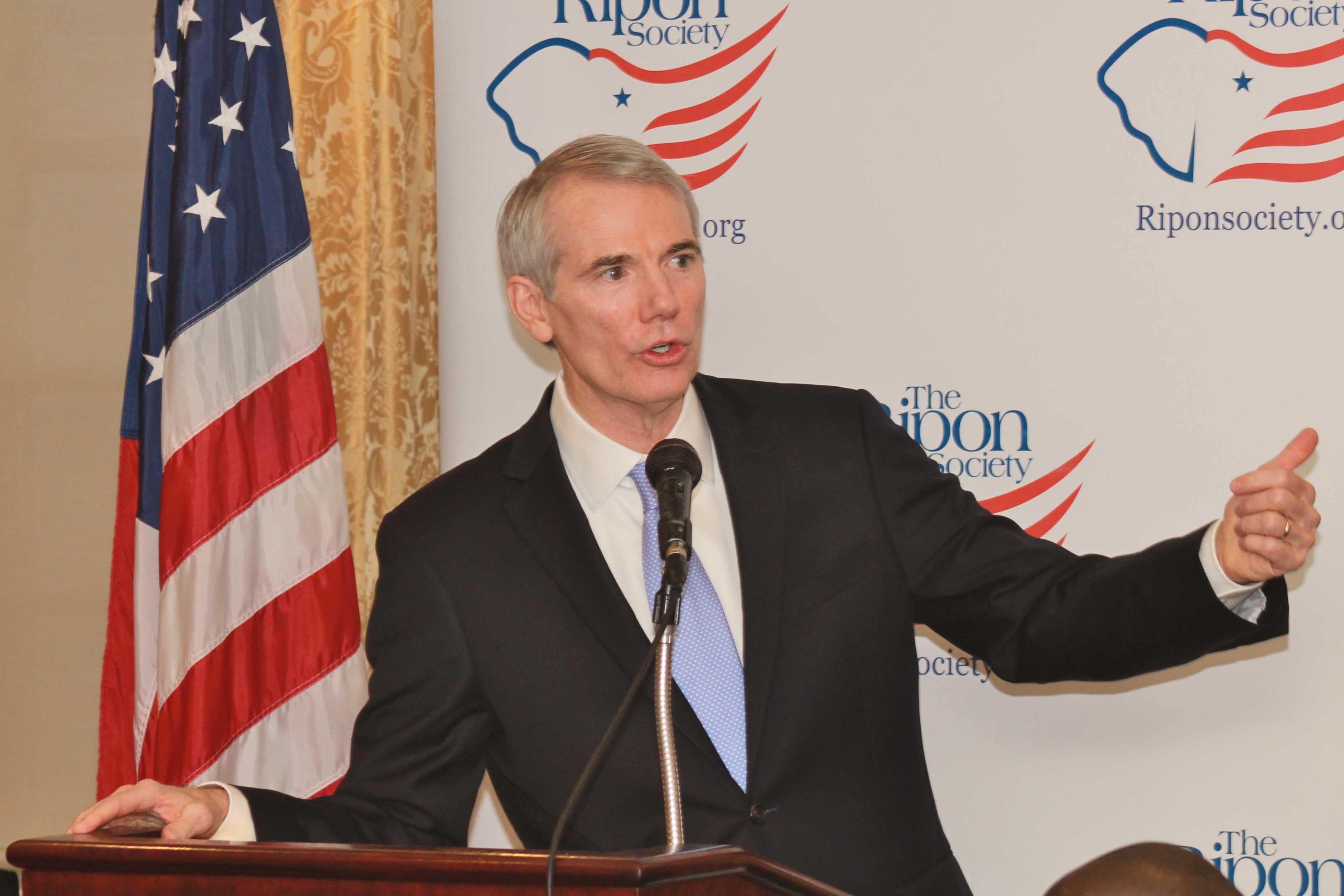 Says current code is hurting American workers and squeezing the middle class
Says current code is hurting American workers and squeezing the middle class
WASHINGTON, DC – In a speech yesterday morning before a breakfast meeting of The Ripon Society, U.S. Senator Rob Portman (R-OH) laid out a case for rewriting the U.S. tax code, saying that American workers are the ones who are ultimately being hurt by the current system, and that reforming the system would help ease what he called “the middle class squeeze.”
“We haven’t reformed the international tax code in any fundamental way since the 1960s,” he stated. “With regard to the tax rate and broader reform on the individual side, we haven’t done anything since the 1980s. What’s happened during this period? Every single one of our competitors has reformed their tax codes. They’ve not only lowered their rates, but for the most part, the vast majority of the countries that compete with us have gone to a territorial type system.
“And we have sat back and allowed our tax system to become antiquated and inefficient, in part because it is hard to take this on. We talk about entitlement reform as being like the third rail on the New York Subway system, in that if you grab it, you’ll get electrified. I would suggest to you that the same is true with many other issues, and tax reform is certainly one of them.”
Portman serves as Chairman of the Permanent Subcommittee on Investigations. In this position — as in his past positions as a Congressman, U.S. Trade Representative, and Director of the Office of Management and Budget – he has been a leader in the effort to reform the U.S. tax code so it better serves American workers.
To that end, Portman stated that he and U.S. Sen. Claire McCaskill (D-MO), the Subcommittee’s Ranking Democrat, convened a hearing this past July looking at the tax code and how it is putting U.S. companies at an economic disadvantage with their competitors around the world. Noting that Treasury Secretary Jack Lew plans to issue new rules in the coming week related to one of the topics of this hearing, corporate inversions, Portman stated that new rules will do nothing to improve America’s global competitiveness, and reiterated that what was ultimately needed was comprehensive tax reform.
“With all due credit to him,” the Ohio lawmaker stated, “Secretary Lew does want to do business tax reform. But he also has to know that what he’s going to announce this week or next week makes no sense, because it doesn’t deal with the underlying problem and, therefore, is not going to solve it. In fact, it will create additional problems. What’s going to happen? More and more of those companies will become foreign companies. Inversions are the tips of the iceberg.
“Last year, there was a doubling – a doubling – of the number of foreign acquisitions of U.S. companies. We welcome foreign investment in this country. What we don’t welcome is having a tax code that makes it so disadvantageous to be an American company that U.S. companies are getting gobbled up by foreign companies, to the point that we’re going to look back four or five years from now if we don’t fix this and say, ‘What happened?’
Portman also commented on recent remarks by Massachusetts Senator Elizabeth Warren, who delivered a speech on Wednesday in which she criticized some of the tax reform proposals currently being discussed, calling them “a giant wet kiss” for American companies.
“The people who get hurt under a 35% tax rate in the worldwide tax system are the workers,” Portman stated. “The Congressional Budget Office did a study on this that showed that 70% of the benefits of a lower rate and a more competitive system will go to workers in terms of higher pay and better benefits. The boardrooms are doing just fine. The idea of reforming this is not to help the big businesses. It’s not to give a ‘big, wet kiss’ to the big businesses and the boardrooms, as Elizabeth Warren is asserting. In fact, what she is advocating – which is to increase the noncompetitive nature of our code by keeping deferral light and by keeping the rates high or even higher – is a big, wet kiss to our foreign competitors. And frankly, it’s a hug to the corporate boardroom.
“If we really are concerned about the middle class squeeze … it is real. When I’m home in Ohio, I talk to people who have not seen their wages go up in five or ten years and have seen their expenses go up on the other hand. And now in Ohio, it’s not just health care costs which are skyrocketing. They’re now also seeing their electricity costs go up. We think Ohio is going to have to end up complying with all these new regulations. There are about five of them that have hit our power plants. We used to be 86% coal back when I first got elected, and now we’re 70%. We think rates are going to go up by double-digits over the next 10 years. So your electricity costs when you turn on the lights are going to go up, tuition costs are up, food costs are up.
“You ask people who are struggling about the percent of their budget that they have to pay for energy costs, health care, or food. It’s growing, and yet their wages are flat. There are lots of proposals out there to deal with this, and lots of ways to give the economy a shot in the arm. I can’t think of one that is more obvious than tax reform.”
The Ripon Society is a public policy organization that was founded in 1962 and takes its name from the town where the Republican Party was born in 1854 – Ripon, Wisconsin. One of the main goals of The Ripon Society is to promote the ideas and principles that have made America great and contributed to the GOP’s success. These ideas include keeping our nation secure, keeping taxes low and having a federal government that is smaller, smarter and more accountable to the people.



